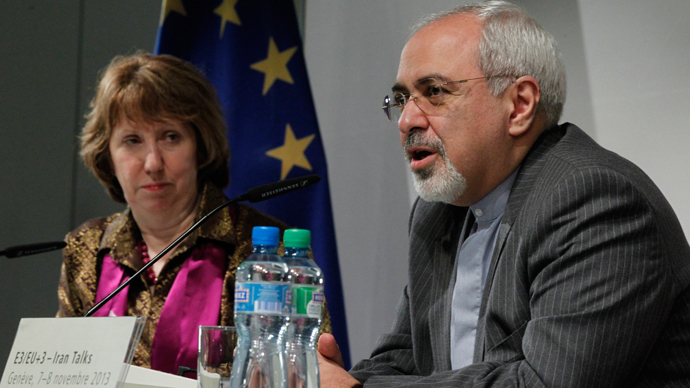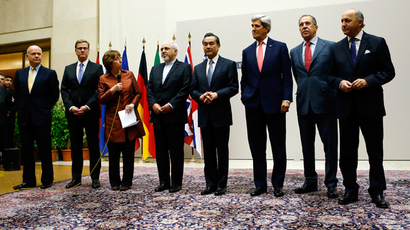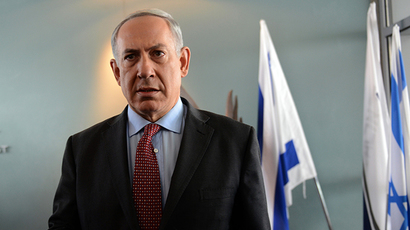Iran, world powers agree to start implementing nuclear deal on Jan. 20

Iran and six leading world powers, the P5+1, have agreed to implement the nuclear deal reached in Geneva in November starting from January 20. Under the agreement, Tehran receives sanction relief in return for steps to curb its nuclear program.
However, a senior US official said Sunday that Iran will not get all of the sanctions relief until the six-month implementation period ends, Reuters reported.
"Access to a portion of these funds will be linked to Iran's progress in completing the dilution process for 20 percent enriched uranium," said the official, referring to Iran's commitment to dilute half of its enriched uranium to no more than 5 percent.
According to the official, Iran would receive the first $550 million installment of a total of $4.2 billion in frozen overseas funds on or around February 1. It will be followed by two payments in March, two more in April, one in May, one in June and the last $550 million payment on or around July 20.
"We will ask the International Atomic Energy Agency to undertake the necessary nuclear-related monitoring and verification activities," EU foriegn policy chief Catherine Ashton said Sunday.
Ashton represents the six world powers – the US, Russia, China, France, Britain and Germany – in diplomatic contacts with Iran aimed at resolving the standoff over Tehran’s nuclear program.
The interim deal, now entering the implementation stage, was confirmed by the Iranian Foreign Ministry.
"Capitals have confirmed the result of the talks in Geneva... The Geneva deal will be implemented from January 20," the Mehr semi-official news agency quoted spokeswoman Marzieh Afkham as saying in Tehran.
US President Barack Obama has welcomed the agreement to implement the nuclear deal. He added that he would veto “any legislation enacting new sanctions during the negotiation of the long-term agreement with Iran.”
The US and other nations will give “modest relief” on sanctions against Iran as the country fulfills its commitments under the deal, Obama said. However, Washington “will move to increase our sanctions” if Tehran does not follow through, he added.
“With today's agreement, we have made concrete progress,” Obama said in a statement Sunday, pointing out that now work on a broader long-term deal with Iran will begin.
“I have no illusions about how hard it will be to achieve this objective, but for the sake of our national security and the peace and security of the world, now is the time to give diplomacy a chance to succeed,” Reuters reported him as saying.

Meanwhile, Iran’s deputy foreign minister Abbas Araqchi said the deal would allow the country to stop complying if it saw its partners not fulfilling their own commitments.
“We don't trust them,” Araqchi told state television.
Earlier this week, senior officials from the EU and Iran met in Geneva to iron out remaining differences regarding the implementation of the November 24 deal.
Under the agreement signed in Geneva, Iran vowed to curb its most sensitive nuclear activities. In return, the country will be allowed access to $4.2 billion in funds frozen as part of the financial sanctions imposed on the country over suspicions that its nuclear program is aimed at producing an atomic bomb.
The Geneva accord will last for six months, during which time international negotiators hope a final, more comprehensive agreement can be agreed that will wind down much of the Iranian nuclear program and govern its scope to ensure it can only be used for peaceful purposes.
According to a senior US official, Iran will get some sanctions relief at the start of the implementation of the November nuclear deal. However, it will not get all of the relief until the six-month implementation period ends.
Access to a portion Iran’s blocked funds will be linked to its progress “in completing the dilution process for 20 percent enriched uranium," the official said Sunday.
“Iran will not have access to the final installment of the $4.2 billion until the last day of the six-month period,” the official added.
Throughout the long-running dispute over the program, Tehran has maintained that it has right to atomic energy and its program is purely peaceful.
Russia’s Foreign Minister Sergey Lavrov, who was among the negotiators, said in November that the deal was a win-win situation for everyone. He added that it only became possible after Iran’s president, Hassan Rouhani, came to power in 2013.
President Vladimir Putin described the Geneva accord “as a balanced list of measures and it will certainly have a positive influence on the development of the international situation.”














